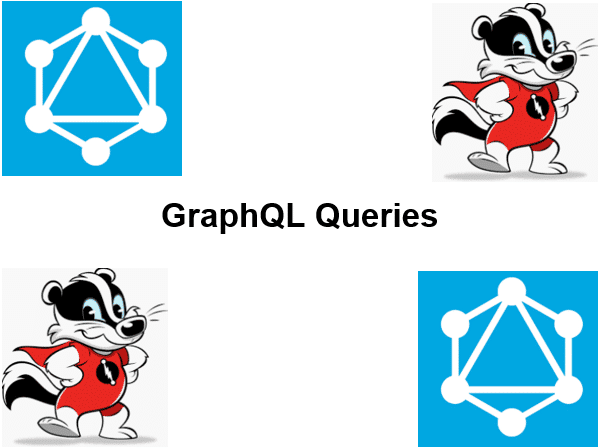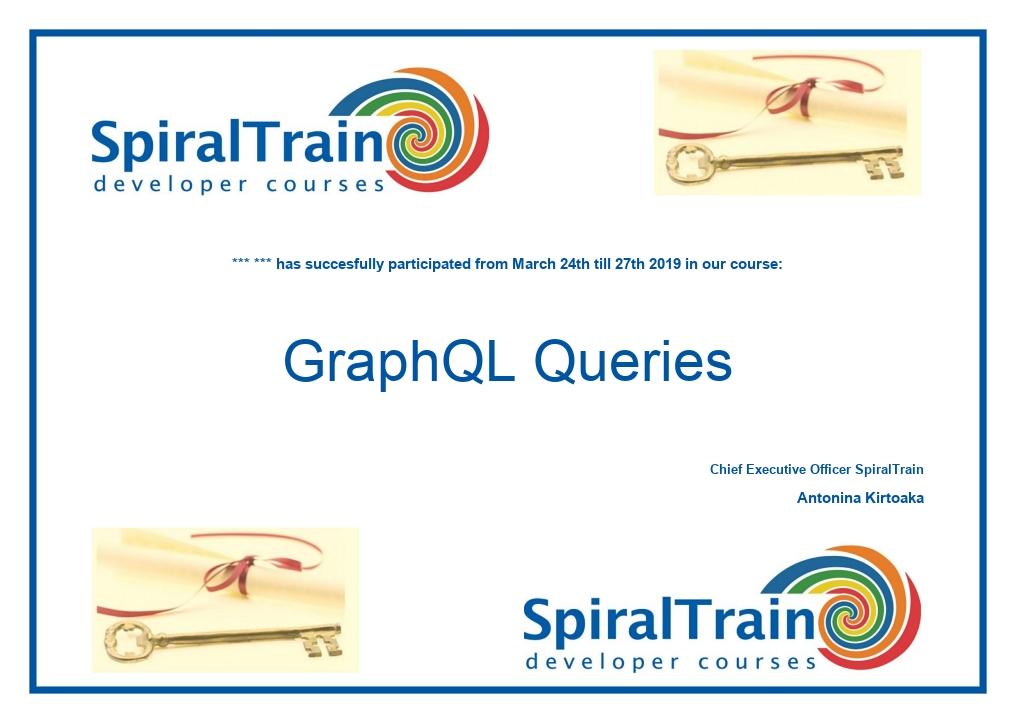-
Learning by doing
-
Trainers with practical experience
-
Classroom training
-
Detailed course material
-
Clear content description
-
Tailormade content possible
-
Training that proceeds
-
Small groups
In the course GraphQL Queries from SpiralTrain the participants learn GraphQL is a query language developed by Facebook that allows fast searching of various Application Program Interfaces (APIs). GraphQL aims to give clients exactly the data that is requested and nothing more. Additionally GraphQL gives those who maintain APIs the flexibility to add fields or declare fields deprecated without affecting existing queries.
In the course GraphQL Queries participants learn the concepts of the query language GraphQL. Attention is paid to how a GraphQL Server responds to GraphQL queries. The transport neutrality of GraphQL is covered and also how GraphQL works with both SQL and NoSQL databases.
The course proceeds to discuss GraphQL schemas that are the core of a GraphQL server implementation and describe the functionality available to clients. The different schema types and data types for the definition of a GraphQL schema are discussed.
Then attention is paid to GraphQL queries that can be used for both read and write operations. The fields, variables, parameters and directives in GraphQL queries are treated as well as the payload of queries.
The discussion of the GraphQL API is also part of the course. Use is made of tooling such as the GraphiQL Client and a GraphQL Server. The GraphQL Playground is available to experiment with the GraphQL API.
Finally the course covers how GrapQL can be integrated in various environments. The integration with jQuery, NodeJS and ReactJS is treated. And also it is discussed how Express GraphQL can be used and how the GraphQL API can be implemented with an Apollo server.
The course GraphQL Queries is intended for web and mobile developers who want to use GraphQL to retrieve or update server data.
Knowledge of and experience with programming and in particular working with REST APIs is beneficial for the understanding.
The concepts are discussed on the basis of presentation slides and demos. The theory is interchanged with exercises. The course times are from 9.30 to 16.30.
After successful completion of the course the participants receive an official certificate GraphQL Queries.

Module 1 : GraphQL Intro |
Module 2 : GraphQL Schema |
Module 3 : GraphQL Queries |
|
What is GraphQL? Query Language Execution Engine Single Endpoint REST Alternative Over Fetching Under Fetching API Standard Declarative Fetching Mobile Apps Improved Performance Strong Typing GraphQL Tooling |
Schema Definition Language Schema Types Scalar Types Int and Float String and Boolean ID Types Object Types Query Type Mutation Type Enums List Type Required Types Relations |
Query Language Documents and Operations Root Field Query Payload Specifying Fields Field Parameters Variables Directives Aliases Fragments Mutations Create, Update, Delete Subscriptions |
Module 4 : GraphQL API |
Module 5 : Validation |
Module 6 : Integrating GraphQL |
|
GraphiQL Client GraphQL Server GraphQL Playground GitHub's GraphQL API GraphQL Explorer Basic Queries Queries with Arguments mutation Keyword Pagination Default Variables Nullable Variables Meta Fields |
Input Types Type Markers Non-nullable Marker Runtime Checks Introspection Validation Rules Resolvers Context Attribute Resolver Result Format Asynchronous Resolvers Trivial Resolvers List Resolvers |
jQuery Integration Server Setup info Argument Scalar Coercion NodeJS Integration Express GraphQL Apollo Server Caching Globally Unique IDs ReactJS Integration Create React App React Server App |
